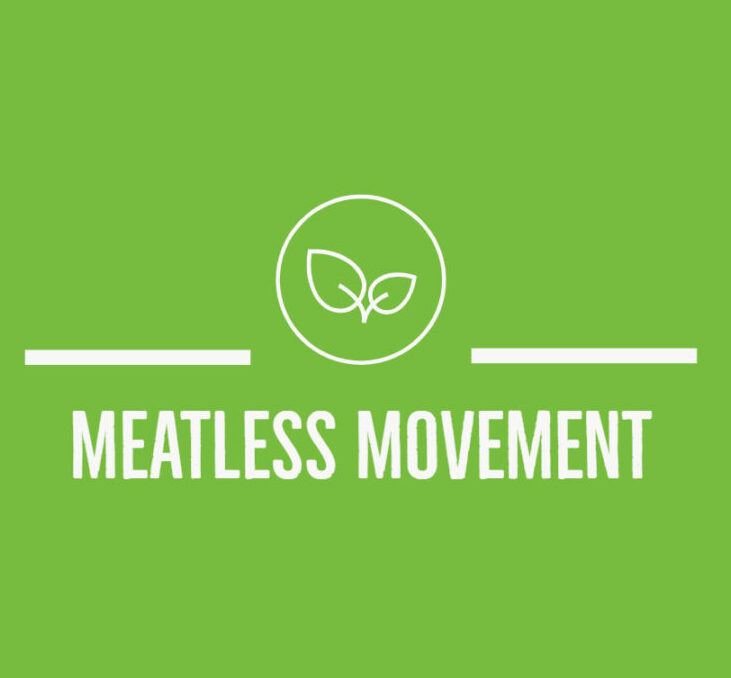Alina’s pursuit of a healthier lifestyle began in 2012 when she confronted a series of health challenges, including inflammation-based diseases.
Her life took a significant turn when she decided to adopt a low-carb, keto lifestyle under the guidance of a doctor who specialized in cell damage investigation.
About five years later, Alina embarked on a new chapter in her health journey, embracing veganism for its potential anti-inflammatory benefits and its alignment with her spiritual beliefs.
Meatless Movement had a chat with her recently.
What sets her apart is her unique fusion of veganism with a low-carb lifestyle, a choice that has led to remarkable improvements in her overall well-being. Alina’s story serves as an inspiring testament to the transformative power of lifestyle choices and the pursuit of holistic health.
Please tell us more about yourself
May your days be filled with sunshine, laughter, and a little bit of mischief
Alina Hutson
My name is Alina, I am from Germany, but I’ve lived in the United States for many years. I am a teacher and author, interested in permaculture, and a proud owner of two dogs with whom I love spending time in nature.

Tell us what makes you turn vegetarian or vegan. How long have you been one?
I started my journey towards a healthier lifestyle in 2012, when I was dealing with multiple health conditions, including inflammation-based diseases. It all changed when I began focusing on a low-carb, keto lifestyle based on the advice of a doctor who investigated cell damage.
Then, around five years later, I turned to veganism for its anti-inflammatory benefits and spiritual alignment. I’ve been combining veganism with a low-carb lifestyle ever since, which has led to significant improvements in my health.

A healthy lifestyle means knowing and going along your natural energy flow
Alina Hutson
One of the most transformative moments for me was when I realized the deep connection between nutrition, spiritual well-being, and mental health. As I evolved through my vegan journey, not only did my physical health improve but my emotional and spiritual aspects also saw a transformation. It felt like finding the missing puzzle pieces to my well-being.

What are common difficulties when searching for vegan or vegetarian food and dining out with friends, and what strategies can help you address these challenges?
Finding balance isn’t always easy, but it’s always worth it.💫
Alina Hutson
Combining a vegan and low-carb lifestyle has its challenges, especially when dining out or finding ready-made options. I usually research menus ahead of time, and sometimes even contact restaurants to check if they can accommodate my dietary needs. At social gatherings, I bring my own food to ensure I stick to my diet while also offering friends a chance to try something new.

What are your thoughts on embracing a vegan lifestyle?
With a ketogenic vegan diet, I’ve seen my confidence and wellbeing transform.🥑🥦
Alina Hutson
I feel absolutely fantastic, both physically and spiritually. Going vegan has been one of the most fulfilling decisions in my life, bringing me closer to a balanced, harmonious existence.

What are effective ways to encourage someone who hasn’t tried vegan or vegetarian food to give meatless options a chance?
Regardless, let’s enjoy the little things in life, like a fresh cup of coffee or a cute puppy on the street. Have a great week!
Alina Hutson
I’d tell them that making the shift is not just about avoiding animal products but also about holistic well-being. Even if they don’t go fully vegan, incorporating more plant-based foods can bring about noticeable changes in their health and energy levels.

Could you suggest some vegan-friendly restaurants or dishes?
It’s vegan, keto-friendly, and absolutely delicious! 🥑🥒
Alina Hutson
Some of my favorite recipes are vegan keto cauliflower/rice buddha bowls and almond flour-based pastries. As for places, local health food stores and more and more normal supermarkets usually have some excellent vegan and low-carb options.

What are common misconceptions about vegans or vegetarians, and how can you provide clarification or education on these topics?
A common misconception is that vegan diets are carb-heavy and therefore incompatible with low-carb or keto lifestyles. I educate people by sharing my own experience and demonstrating that it’s entirely possible to be low-carb and vegan at the same time, enjoying the benefits of both worlds.

What advice would you offer to someone who is just starting their journey toward a meatless diet?
Embracing oneself is the first rule of love 💖🌼 Every day is a gift, every smile a blessing. Let your heart shine!
Alina Hutson

Start slow and make incremental changes. You don’t have to go fully vegan overnight. Begin by incorporating more fruits, vegetables, and plant-based proteins into your diet. Listen to your body and adjust accordingly.
Since my diet is rich in plant proteins from sources like nuts, soy-based foods, tempeh, edamame, seed-based foods, and leafy greens, I’ve found that my workouts are more effective than ever before.
The combination of low carbs and high protein from plant sources seems to make muscle building and recovery much faster, enhancing the overall quality of my workouts. This has been a fantastic, unexpected benefit of my vegan journey that complements the spiritual and emotional gains I’ve experienced.
Any closing remarks
Embracing veganism is not just a dietary choice, but a holistic approach to life. It involves physical, emotional, and spiritual factors, and all need to be followed to live harmoniously with oneself and others. Thank you for letting me share my journey.
Alina Hutson
Keto vegan 🌱with two pups by my side
IG https://www.instagram.com/alinaculta
X https://twitter.com/AlinaCulta
Tik Tok www.tiktok.com/@alinaculta
all images courtesy of Alina Hutson
